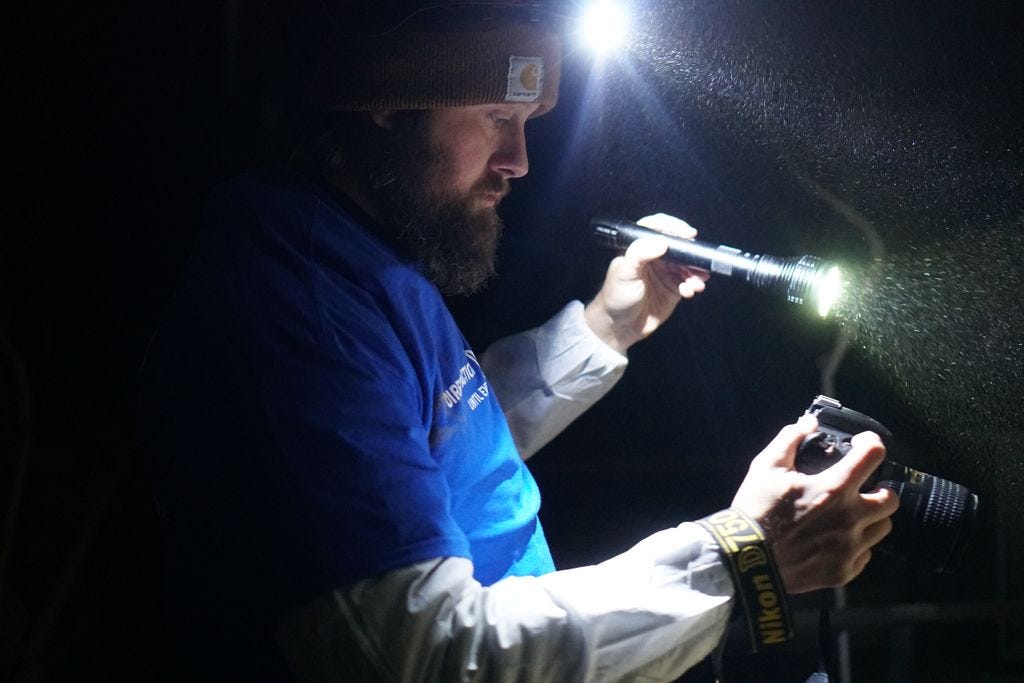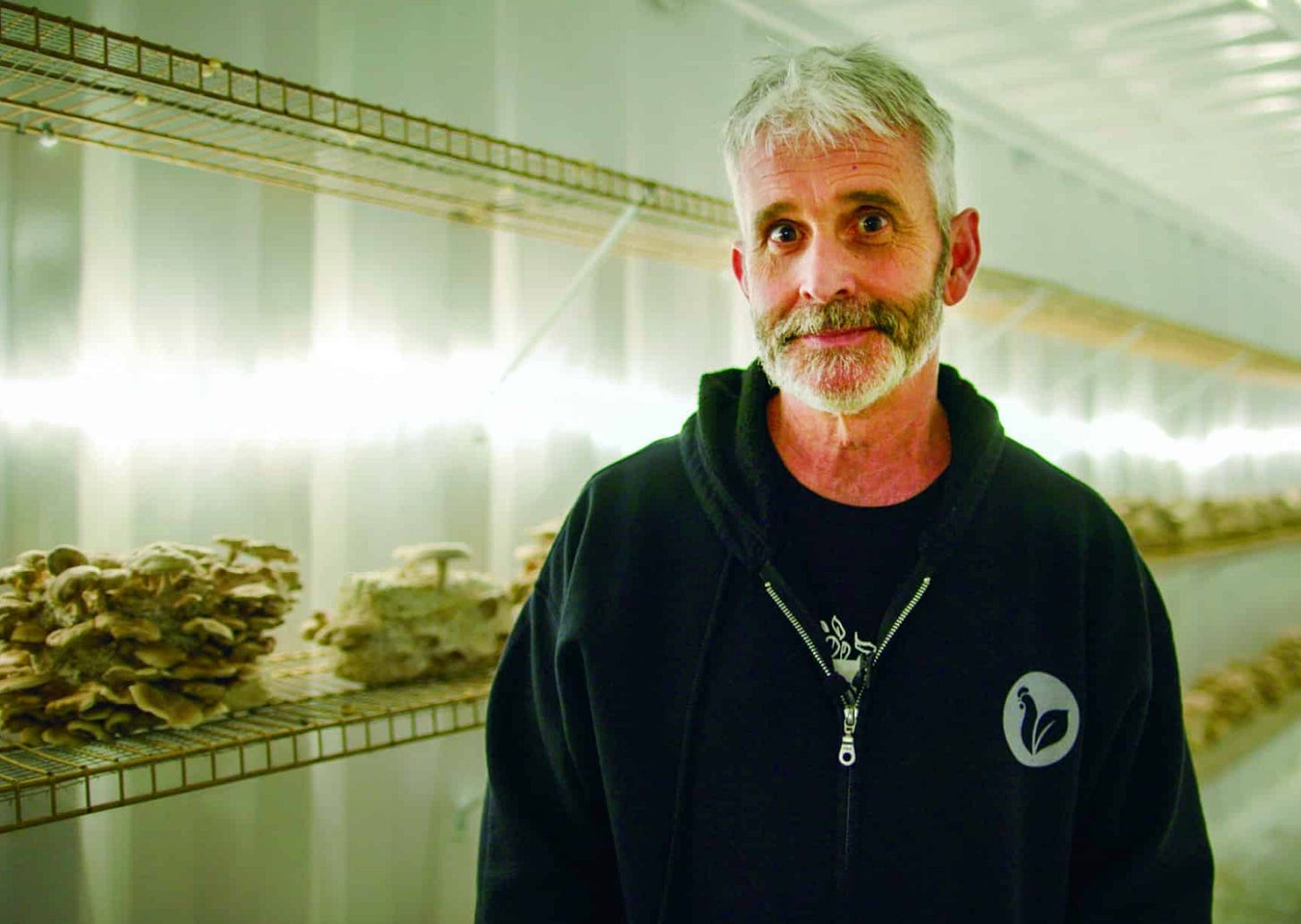Biden, Animals, and the Promise of Radical Transparency
Hiding things – whether mental decline or animal cruelty – doesn’t work. Here’s what does.
Update: It’s impossible to release this newsletter without commenting on the assassination attempt at a Trump rally yesterday. Let me say this for now: the shooting was a predictable outcome of the breakdown in trust we are seeing across the nation and world. And compassion — including for animals — is the only way out of this cycle of violence. Stay tuned, as I plan to write more.
Powerful people and institutions often rely on secrecy when things go wrong. But the events of the last few weeks show the perils of that strategy in everything from Presidential campaigns to food politics.
Take the Biden campaign. After a disastrous performance in the presidential debate, multiple news reports have come out describing the Biden campaign’s years-long efforts to conceal the President’s mental decline. According to the Wall Street Journal, even staff members in the White House, who had been denied one-on-one time with Biden, were shocked when the President struggled to form coherent sentences in the June 27 debate.
Secrecy was also at the root of another crisis across the Atlantic. On June 9, activists at Animal Rising published the most comprehensive investigation of “humane” animal farms that’s ever been undertaken. And, like the voters shocked by Biden’s debate performance, consumers were shocked by the brutal conditions on supposedly-humane farms, including tens of thousands of animals crammed into industrial sheds. According to Animal Rising, even the RSPCA, which was certifying the farms in question as higher welfare, did not know that the farms it had certified were, in fact, intensive factory farms – not the idyllic small farms it advertised on its website.
I speak to Animal Rising’s Rose Patterson about how her 50-person team infiltrated dozens of “humane” farms in the latest episode of my YouTube show and podcast.
The problem with Biden’s campaign, and animal agriculture, is a problem of secrecy. Both institutions have struggled with secrets – Biden’s age-related decline, the meat industry’s cruelty – that they prefer to hide. And problems of secrecy are becoming increasingly important in modern life.
The first reason for this is that secrets are becoming harder to hide. Through most of history, power brokers decided on the fate of the world in shadowy, smoke-filled rooms. But that world is gone. Power built on secrecy cannot survive when there’s a camera in every pocket. Biden’s senior staff didn’t understand this when they hoped they could hide his decline. Factory farm executives don’t understand this when they attempt to gag those who blow the whistle on the abuses in their barns.

The second reason is that secrets, once exposed, are often worse than the underlying problem they attempt to hide. Biden faced criticism due to his age back in 2020, and in the years leading up the Presidential debate. But instead of being open about any potential problems, the campaign sharply limited public access. Biden has given only 133 interviews as President (compared to 513 by Barack Obama and 379 for Donald Trump at the same time in their presidencies), and many of Biden’s interviews were only approved with pre-written, “softball” questions. Once the secret of his decline was exposed, it has dominated news cycles in a way that an open admission by the campaign of some age-related problems never would have.
Similarly, Big Ag might have hoped that gagging activists would solve its problem; instead, attempts to hide the cruelty of factory farms have led to some of the biggest stories in animal rights history. For example, Glenn Greenwald’s viral story about the cover-up at Smithfield Foods was shared on Facebook alone over 130,000 times. The New York Times story about the original investigation, in contrast, was shared only a few thousand times. The difference was that Glenn’s story was not just about cruelty but about how the industry tried to hide the cruelty in secrecy.
The third and most important reason for the problem of secrecy, however, is that secrets prevent us from being changed by the truth. The very existence of a secret suggests that there’s something wrong that needs to change. If Biden had been up front about his mental decline, perhaps the campaign could have changed strategies to reassure voters that his staff would fill in the gaps, or that his verbal stumbles would not affect his judgment as President. But secrecy allowed Biden’s campaign to stay the course and avoid the disciplining effect of the truth: many Americans were deeply uncomfortable with his age.
The same point can be made of Big Ag. The secrecy of factory farming prevents the players in the food systems from being changed by the truth. And the truth is that many Americans are deeply uncomfortable with the cruelty of how our meat is made. If the industry had open conversations about this truth, instead of covering it up, arrangements could be made to help farmers transition to alternative businesses, e.g., Craig Watts (who replaced his chicken farm with a mushroom farm) or Renee King-Sonnen (who turned her cattle ranch into a sanctuary). Secrecy blocks these important conversations and changes.

But there is a simple solution to the problem of secrecy: the promise of transparency. Those who hold power, far from keeping secrets, must be radically transparent about their ideas and actions.
Imagine if Biden had a livestream camera that broadcast every conversation he had on the presidential campaign. The world would quickly be reassured of his abilities – or move to replace him with another candidate. Either way, it would be a welcome change.
Similarly, imagine if every factory farm invited people openly into their barns – instead of sending people to prison for investigating them. The public would either become confident that the conditions were ok – or decide it simply can’t stomach the cruelty. Either way, the food system would positively change.
This sort of radical transparency is necessary not just for change, but for our society’s very survival. Trust is plummeting; conflict and violence are rising, with the threat of existential threats (such as nuclear war or climate crisis) on the horizon. Even seemingly insignificant secrets, like Hilary Clinton’s emails or Hunter Biden’s laptop, can spiral into a vortex of distrust and hate. Our society needs new models of power and organization, grounded in radical transparency, to survive.
And this is where Biden and Big Ag have failed us most: they have refused to provide transparency into our society’s greatest crimes. In both the scale and severity of the violence, animal exploitation is the worst atrocity in history. Yet when the pork industry attempted to strike down Proposition 12, the California ballot initiative that gave farm animals just a tiny bit of space to move around, Biden didn’t address the issue openly with the 7.5+ million California voters who approved the law. Instead, he joined the meat industry in trying to shut the conversation down. His administration quietly filed a brief in the Supreme Court asserting that California had “no legitimate state interest” in stopping animal cruelty around the nation — and refused to engage with animal advocates about its position.
That decision by Biden, sadly, was a sign of things to come. A leader who cannot openly reckon with the greatest crimes in history cannot reckon with his own weaknesses. And this November, it may be the nation that suffers from Biden’s mistakes.
What’s up this week?
The attempted assassination of Donald Trump is a sign of the fundamental failure of our political system — and animal rights might hold the key to fixing the problem. This is the thesis I plan to defend in my next newsletter. Make no mistake. I have no love for Trump. His administration was probably worse than Biden’s on animal rights. (Among other failings, it sent billions of dollars in subsidies to factory farmers.) But the violence in Pennsylvania yesterday suggests a deeper corruption in our system. Many people have not just lost faith in our institutions; they believe our institutions are actively preying on the vulnerable. Violence is the result of a society where trust in our institutions has been fundamentally broken. Rebuilding that trust will require institutions that treat even the most vulnerable with respect.
The Ridglan special prosecutor hearing has been delayed, most likely to September 12. We received last minute notice of this delay. We do not think it will affect our chances of success, but it does give Ridglan more time to engage in various legal shenanigans. In the meantime, I shared the full story of the Ridglan rescue for the first time on our new YouTube channel. Check it out here:
The Sonoma County Board of Supervisors, in an astounding act of political corruption, unconstitutionally modified a ballot initiative in an effort to undermine its support. The Board voted to remove the words, “to promote animal welfare, water quality, and other goals,” from Measure J, which seeks to ban factory farms in the county. That leaves voters with no sense of why Measure J is so important. This action by the Board, however, violates the California Constitution, which rests the ballot initiative process in the hands of voters and citizens, not the county legislators. While the County Counsel is entitled to draft the title and summary of the measure, it must do so within 15 days of submission of the proposed measure — and the Board has no right to amend the measure after it has been submitted to elections officials. I am hopeful that local activists legally challenge this action. It is simply another demonstration of the deep corruption in Sonoma County, which led to my own incarceration last November.
Hive, a promising new nonprofit focused on building collaboration in the animal rights movement, is hosting an AI and Animals Meetup in San Francisco on July 28. AI is not just a promising technology but a cultural phenomenon. I’d highly encourage you to join if you have any interest. I’ll be attending and assisting Hive with this event. RSVP here.
That’s all for now! But stay tuned for more.



Wayne, this is such a great blog post and I commend you for the courage to come out and openly have this very necessary and difficult conversation. We can't keep walking around the 2000 pound bull in the living room, or the legs, wings, and breasts in the refrigerator that suffered violent and unthinkable deaths. And thanks so much for the mention of us turning our cattle ranch in Texas to Rowdy Girl Sanctuary. It is my greatest prayer that our story will infiltrate the darkness soon because where there is light no darkness can prevail. Let's do this! You are one of those bright lights that ever shines in this world of suffering. I love you.
I 100% agree with the need to shine a light on factory farms and all the cruelty that takes place within them as you have been doing — thank you! But I am not comfortable lumping Biden campaign issues together with animal abuse. Though the Biden Administration does not have a great track record on animal welfare, I believe the Trump Administration was even worse. I think if Trump is elected again, he will destroy our democracy, including the weak animal protections we have today.